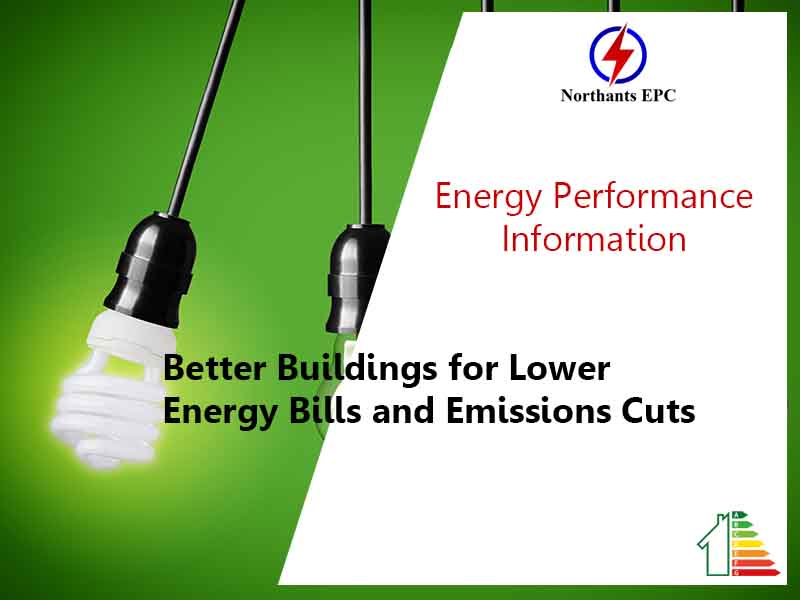Better Buildings for Lower Energy Bills and Emissions Cuts
Commission welcomes political agreement on new rules to boost energy performance of buildings across the EU
The European Commission has welcomed the recent provisional agreement reached between the European Parliament and Council on strengthening rules to reduce emissions and energy use from buildings across the EU. This political agreement represents a major step forward in supporting the EU’s efforts to decarbonize the enormous building sector, which accounts for 36% of energy-related greenhouse gas emissions.
The deal includes a host of measures focused on dramatically improving the energy efficiency of buildings over the next decade, especially targeting the worst performing structures. This will not only help the EU meet its ambitious climate goals under the European Green Deal, but also promises to lower energy bills for homeowners and renters. Buildings that use less energy ultimately save people money.
National Targets to Cut Energy Use 16% by 2030
———————————————–
The centerpiece of the updated Energy Performance of Buildings Directive (EPBD) is new national trajectories for Member States to reduce the average primary energy use of residential buildings by 16% by 2030 and 20-22% by 2035 compared to 2021 levels. Countries can tailor reduction plans based on national circumstances.
However, at least 55% of the mandated decrease in average energy use must come from renovating the worst performing buildings. These older, inefficient buildings often have the highest energy bills, so targeting upgrades here can maximize consumer savings. Non-residential buildings also face staggered minimum energy performance standards that will renovate 16% of the worst commercial real estate by 2030.
Upgraded Energy Performance Certificates & Protecting Tenants
————————————————————-
Alongside energy targets, the deal introduces upgraded Energy Performance Certificates (EPCs) based on common EU criteria to better inform homebuyers, renters, building owners and banks making renovation loans. Countries additionally need financial measures focused on the energy poor and worst buildings. The rules also have safeguards so vulnerable residents aren’t evicted due to sudden rent hikes after renovations.
National Strategies to Overcome Barriers & Trigger Renovations
————————————————————–
Simply setting targets is insufficient without the right policy framework, so countries must develop comprehensive Building Renovation Plans outlining their national decarbonization strategy for buildings, including tackling barriers like access to affordable financing or availability of skilled construction workers. These roadmaps are vital.
The agreement also requires establishing one-stop guidance shops for homeowners and businesses to get tailored renovation recommendations. And Member States need to introduce building renovation passports to assist owners in planning step-by-step upgrades all the way to net zero emissions.
Phasing Out Fossil Fuel Boilers & Funding Clean Heating Systems
—————————————————————-
To slash building emissions, countries cannot continue installing polluting fossil fuel boilers and furnaces. Under the deal, subsidies for new standalone fossil fuel boilers will be banned starting January 1, 2025. And there is now an explicit legal foundation for governments to phase-out natural gas and other fossil fuel heating over the next 20 years via emissions limits, fuel bans or mandates for renewable heating sources.
The text says Member States must put forward specific national measures and policies to completely phase-out fossil fuel boilers by 2040. This will necessitate major public and private investment in upgrading heating systems to run on renewable energy sources like heat pumps, biogas and solar thermal.
Charging Up Electric Vehicles & Accommodating Bicycles
——————————————————-
In addition to transforming building operations, the agreement includes important provisions to support sustainable mobility by requiring more electric vehicle charging capacity along with ample bicycle parking.
New buildings must be pre-wired for EV chargers, while all new and renovated non-residential properties need charging points installed based on size and use. Residential buildings also face staggered electric vehicle charging requirements. Altogether, the rules will make charging infrastructure ubiquitous.
Furthermore, sufficient parking for bikes and cargo bikes is mandated in new and refurbished buildings to promote carbon-free transportation. This combination of upgrades will enable and encourage residents, workers and visitors to utilize clean mobility.
Zero Emission Buildings Become the New Standard
————————————————
The most transformative policy in the revised EPBD is the establishment of zero direct fossil fuel emissions from buildings as the new standard for all new construction within this decade. Public buildings must adhere to the zero on-site emissions rule starting January 1, 2028, while all other buildings have until January 1, 2030.
A few narrow exemptions are allowed, but the overwhelming majority of new residential and commercial buildings in the EU will shortly rely completely on renewable electricity and heating sources. This is a dramatic step up from the status quo that will accelerate decarbonization.
Additionally, all suitable new structures must be “solar-ready” to host rooftop solar photovoltaic or solar thermal systems in the future. Existing public and non-residential buildings also face solar installation mandates on applicable rooftops and parking lots over time, further expanding renewable power generation.
Full Approval & Implementation Expected in 2023
———————————————–
With political agreement now reached after extensive inter-institutional negotiations, the draft legislation will go to the full European Parliament and Council for formal approval early this year. The finalized Directive will then be published in the Official Journal of the European Union upon adoption.
Member States will have to move quickly under specified timelines to transpose the myriad new obligations into national law. The EU will also provide technical and financial assistance for implementation. So although the deal itself represents major progress, much work lies ahead to fulfill the goals of slashing building emissions through deep renovations and renewable energy. The payoff will be improved quality of life, lower energy costs and achieving climate neutrality.
